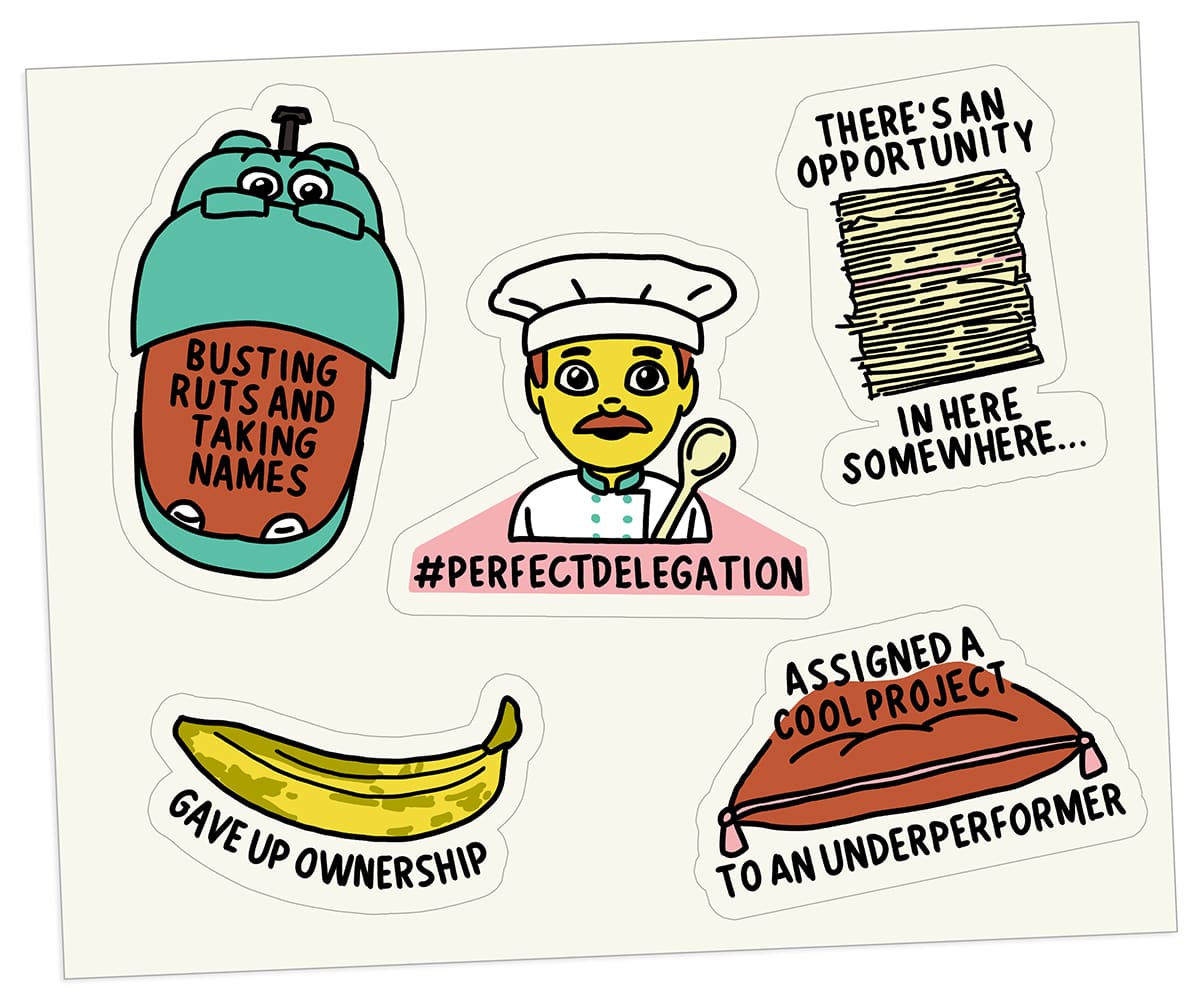Emma: When I feel guilty about delegating — like I’m not doing my job, or I’m going to overburden one of my very busy reports — I try to remember how hungry I was when I was building my career. How hungry I still am to get the right experience to unlock that next level.
Andy: Yeah, building a budget is a real drag unless you’ve never built a budget before. Then building a budget is like, “Hey look, now I know how to build a budget!”
Emma: Perfect delegation is when you can transfer something off your plate that’s an opportunity someone else wants. It can’t happen every time, but when it does: bellissimo!
Andy: The key to creating an opportunity is ownership. If I’m making a smoothie, I can ask you to hand me a banana and get the milk out of the fridge. But that’s just assigning tasks. I’m still the one making the smoothie.
Emma: It’s a huge difference, and one I’m not very good at noticing in the heat of my day-to-day. I remember at Reviews.com we had to post monthly recaps of our team’s stats on a company-wide message board. These things were huge and visible and I wanted mine to be beautiful. But it would take me hours to compile all the information and then more hours to write up the report. So I started “delegating” all the information gathering to a guy on my team.
Looking back: Why didn’t I have that guy also craft the report part?! Why didn’t I give him that result to own, the experience of finding a story in the numbers and broadcasting it to the organization? It honestly never crossed my mind, and not for any particular reason other than I wasn’t thinking of creating opportunities. I was just thinking about how to get out from under too much work.
Andy: Which is important!
Emma: It’s just not the most elegant solution.
Design an Opportunity
You already have a list of tasks you know you shouldn’t be spending your time on. (If you don’t, start by figuring those out.) What do you need to add to make each one meaningful? Try looking one or two ladder rungs above the task to find the larger result it’s supporting. That’s where the ownership is, and that’s what you should be delegating.
Then Delegate It
This is everything you should clearly communicate so the person you’re delegating to is empowered and on the same page that you are. (Bonus points if they’re excited, too.)
- What the opportunity is
- Why they are the person you chose to do it
- How it fits into the larger picture
- What success looks like (examples of previous work are helpful; so is a scorecard)
- What help is available
- If there are any additional resources, like a budget or teammates who can pitch in
- Its priority, including if anything needs to come off their plate or be pushed out
- Check-in expectations
- When it’s due
Ready to Try?
We put both these pieces into a little worksheet for you to use in real life. See it in spreadsheet form (with an example) here or download it as a PDF to print out here.

Andy: I don’t like to only give the highest-profile projects to my top performers, partly because I know how exhausting it is to be assigned every. single. hard and important task. But I also want to give the least-engaged people on my team the chance to show me that they’re in or they’re out. Delegating them dull, no-way-to-fail to-do’s isn’t going to do that.
Emma: Dull stuff is always part of the job and someone’s gotta do it. When I’m delegating it, I try to spread it around. Can I break it into pieces and rotate it around, like an on-call shift?
Andy: I like to float those types of tasks by my most creative thinkers, too. Can they bust the rut in how we approach it?
Emma: Rut busting! If that’s not a cool opportunity for someone, I don’t know what is.

Good Boss Achievement Stickers: Delegation Edition
Celebrate your victories with our weekly set of Good Boss Achievement stickers.




